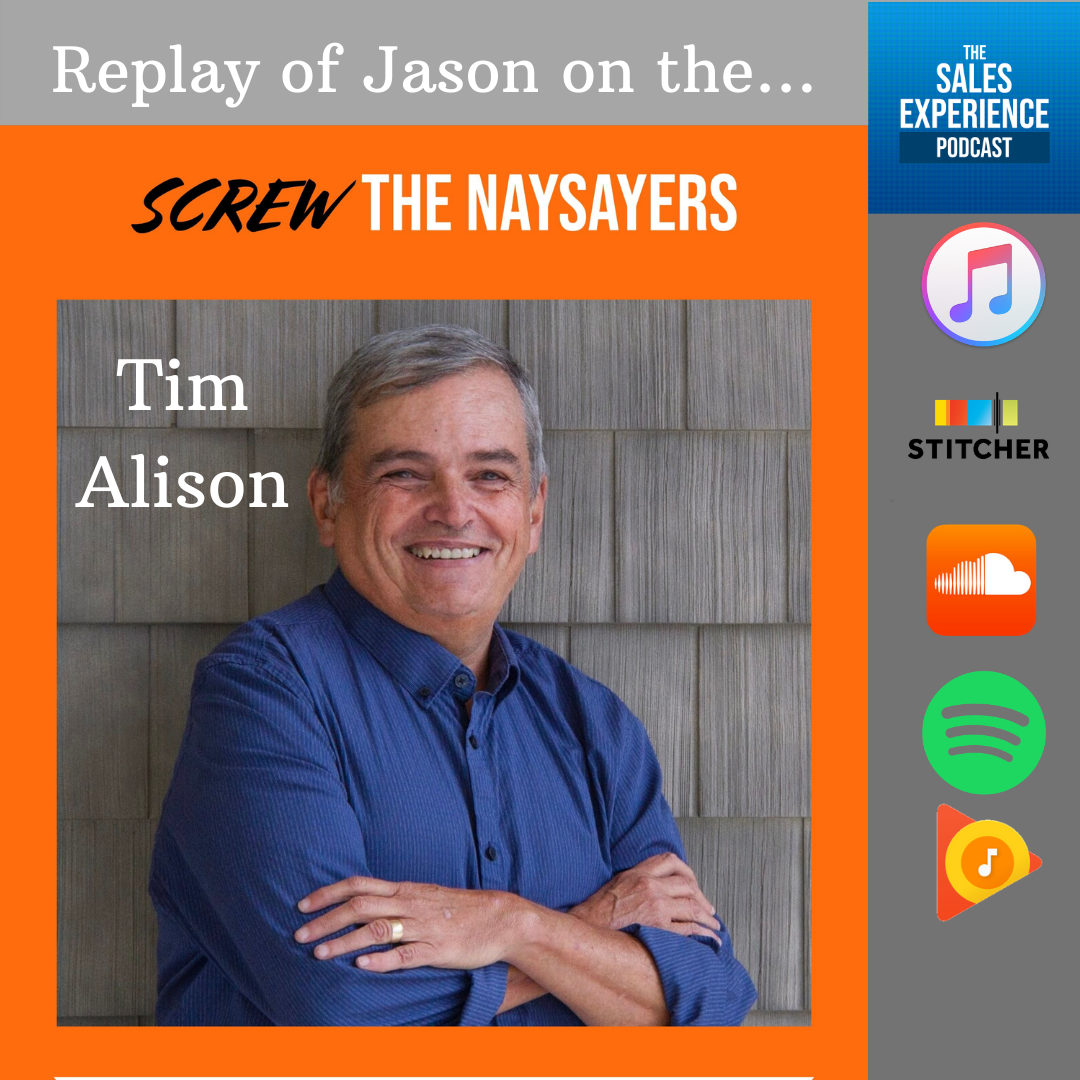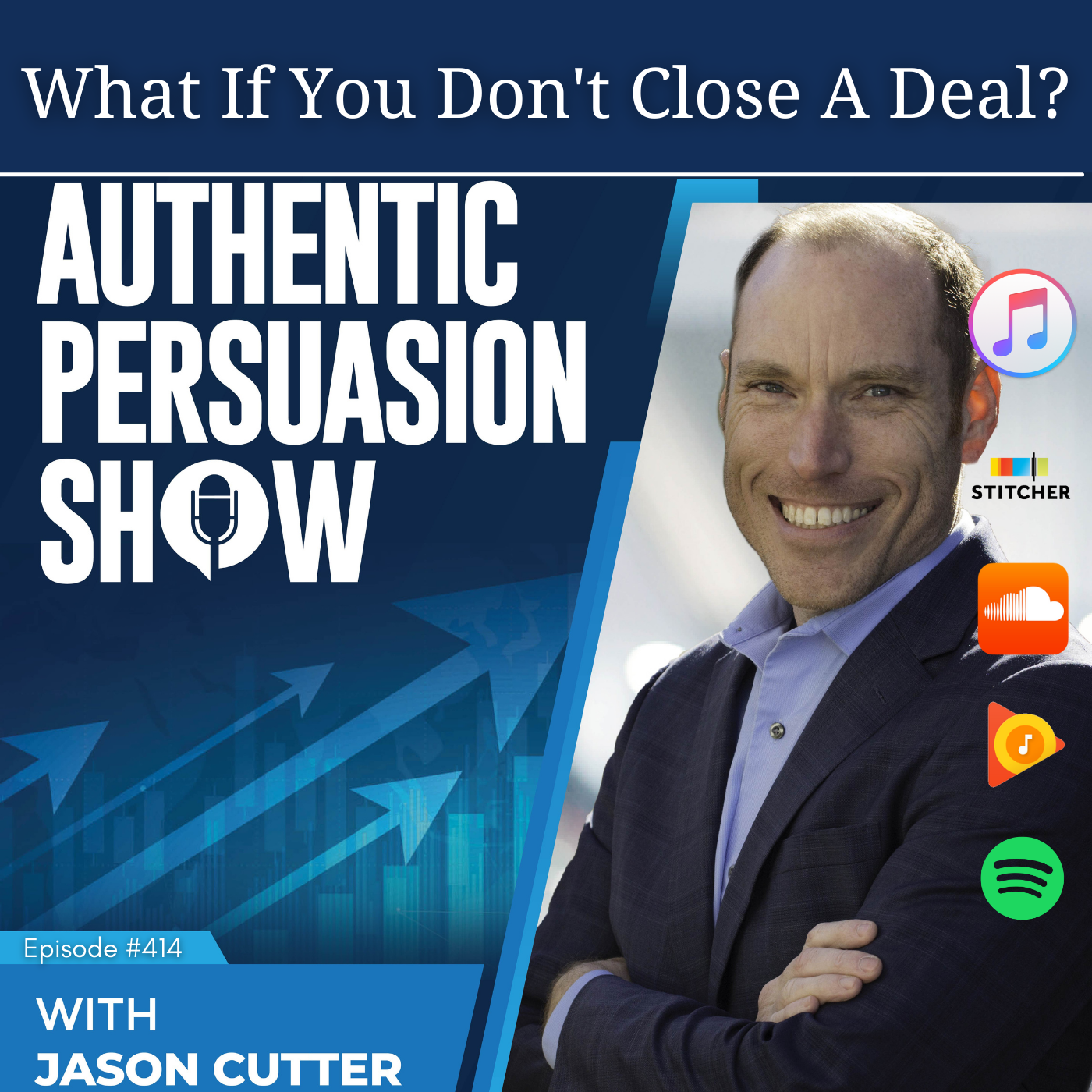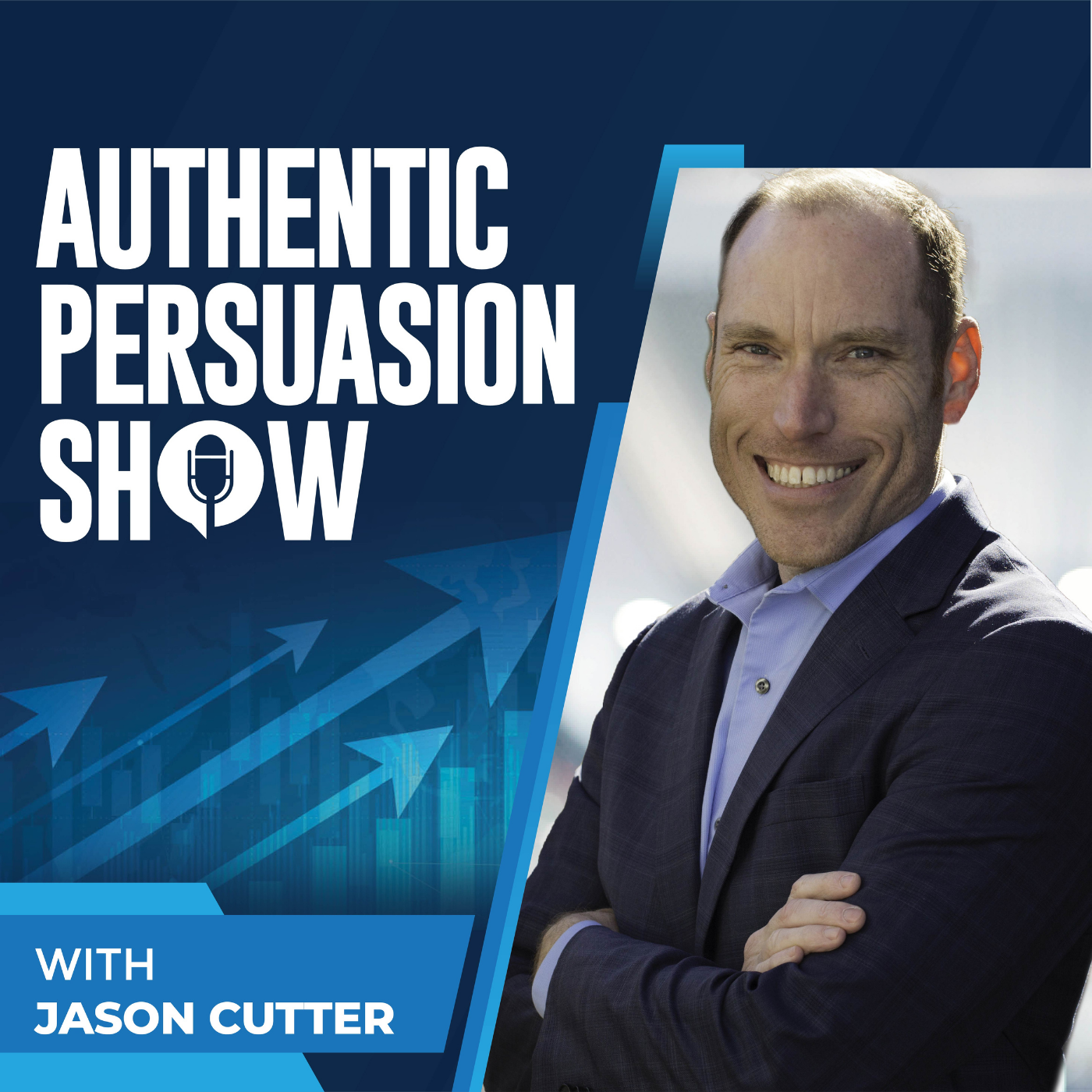Episode Transcript
[00:00:00] Speaker A: Welcome to the authentic persuasion show. On this episode, I want to replay part of a previous show. Maybe you heard the original full length episode and this could be a great refresher and reminder. Or maybe this is your first time hearing this content and the timing could be just right to help you leverage authentic persuasion today in your role, no matter what. Here's to your success.
This is the authentic persuasion show.
[00:00:24] Speaker B: You it.
[00:00:26] Speaker A: Let's talk about power of no. Leveraging no.
[00:00:31] Speaker B: But the dangers of no. So starting starting with the dangers of no. What I see a lot is people who are order taking in that mode in sales, and they're not strong and they're not effective from a sales professional standpoint for what somebody would be doing at a high level in sales. Right? So if you're watching that, it's perfect. If you know that's you, you could be closing more deals, you could be making more money, then that's perfect. A lot of times what I see is somebody in that mode when they are selling and they see someone who has some resistance to buying, or they're not sure if it makes sense, they easily tell people no or they let people off the hook. And so that's the part where you've got to be careful and not just giving up too easily. Usually what happens is people aren't finishing the empathy step enough, digging deep enough, and they're just taking surface answers and then saying, up, you don't qualify up, you're not going to need this. Or when that prospective client pushes back in any way and comes up with some objections, I see salespeople say, oh, well, this is probably not going to be for you. And I don't mean in like a takeaway way, not like they're trying to manipulate using the takeaway. I mean in a purely like, okay, this person obviously doesn't want it because they're asking a bunch of questions and this is hard and this is confrontational and no. Right. That's what you have to be careful of. Because when I talk about the power of no and telling people no, sometimes people in sales are like, okay, cool, that gives me a blank check where I can say no to people all the time because Jason said to do it and come from a place of abundance. And then it turns into this whole debate, like in the movie the secret, which is, okay, so I just sit on my couch and think abundance thoughts and positive affirmations and I'll get what I want in life. And that's part of the formula. But it's also about taking action, right? Like my mentor David Meltzer says all the time and repeats from somebody he heard it from is the power of Goya, right? Get off your ass. It's not just about thinking positive thoughts and saying positive affirmations in itself. It's also about action, right? So there's two parts of that formula, just like our authentic persuasion, right? You got to be authentic. Got to use persuasion. You got to use them together in that order, and then there's success. So when you're telling people, no, you've got to understand that when you're doing that, there's a reason, and it's just not something where you're taking that excuse and then saying, okay, I'm just going to wait for the easy deals. Because again, we're not going after the easy deals. The easy deals are already the ones that you're closing as an order taker. Or if you're not hitting your numbers where you want to be in your career, it's most likely that it's usually the easy deals are the ones that you can relate to the most, but not the other percentage of ones that take some skill, right? Like, if we look at baseball as a great analogy, there's some pitches that are thrown that are just so easy to hit. Anyone can hit them, right? And everyone can hit them. And when that pitcher makes that mistake or throws that pitch, everybody has a chance to just crush that ball wherever they want, right? But it's the professionals, it's the high level, it's the hall of Fame. Batters who can then hit a wide range of pitches can hit most anything that's thrown over the plate in the strike zone that they can get contact with, right. Because they can read it and they know how to do what they do best, and then they make contact. And that's what we're talking about in sales, right? It's not just the easy ones. It's not just the easy pitches. It's not just the lay down clients who have no issues, no objections. That's not what we're talking about. Because anyone can close those. Order takers can close those. Customer service reps could close those. We're talking about persuasion and helping someone move out of their comfort zone to make a change that benefits them. And that's really the key. So we got to make sure we're using no in the right way and not just using it as an excuse to let people off the hook and then end up with bad sales stats and bad income and potentially being fired.
![[723] The Strategic Use of "No"](https://episodes.castos.com/salesexperiencepodcast/images/1658292/c1a-4d8w-v08j525kspon-n4wydh.png)


